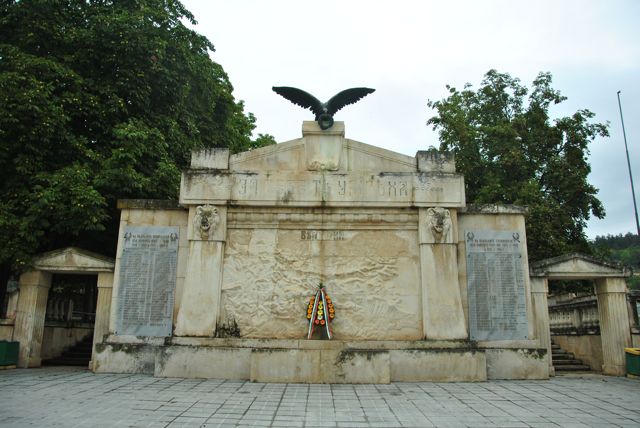Photos: the author
Polina Spartyanova
Having suffered tremendous losses during the two Balkan wars, Bulgaria faced many social and economic problems. The first national disaster in Bulgaria’s recent history became a fact after the loss of 65,000 men, and the injury of over 100,000, during the war. The Bulgarian economy lost nearly two billion leva due to the military actions and managed to expand its territory by only 17%, whereas Serbia expanded by 85% and Greece by 100%.
"The terms of the Treaty of Bucharest that terminated the military conflict in the Balkans were tragic for Bulgaria because, on the one hand, they put an end to the efforts of generations of Bulgarians for liberation and national unification. On the other, peace was the only way to stop the Balkan War that Bulgaria lost," says historian Veselin Yanchev. Following the signing of the peace treaty one of the few cities and villages in the country, which found a solution to the crisis, was the village of Suhindol. The first vine and wine cooperative in the Balkan Peninsula was found there back in 1909 and during the hostilities, it did not stop its activity but developed it. Thus, the small village and the surrounding areas managed not only to overcome the economic difficulties due to the two successive wars but also to develop their wine business.
According to Marin Kovachev and Boyan Baychev and their joint book "Way over the years", "the favourable soil of smart people with traditions in education and culture, and their intellectual leaders" was crucial for the establishment of the "Gamza" vine and wine cooperative in Suhindol. The idea of its creation belonged to one of the brightest patriots in this region at the time, Marko Vachkov, and to his desire to oppose the big wine merchants who were buying at a low price the product of the vine growers from Suhindol. He managed to gather the most progressive and enthusiastic vine growers in the village and received their support to create a joint vine and wine cooperative that was the first one in the Balkans and which is still in operation today.

In the beginning, the activities of the newly established "Gamza" cooperative were ‘anaemic’, it involved only 40 people and its working capital was only 10,000 leva. But over the years its operations expanded by investing in the construction of common wine tanks with an increasing capacity and stills for the production of grape brandy. The 75,000 litres of wine produced before the first Balkan war made the cooperative popular and despite the subsequent mobilization of some of its workers, the number of its members increased to 200 in the following year and its production reached 250,000 litres.
The reason for this was that many families were left without their householders during the war and they decided to take part in the vine and wine cooperativein order to be able to feed their families in the difficult post-war years. Consequently, an increasing number of wine makers and vine growers from Suhindol and the surrounding area grouped around the idea of the "Gamza" cooperative and managed to overcome the economic consequences of the subsequent Second Balkan War and World War I. The cooperative allowed the involvement of women who became widows during the war, although they did not have statutory rights in the state at this time. Due to the good organization and cooperation between the different participants in the "Gamza" enterprise, the village of Suhindol managed to grow in the 1930s and maintained steady economic growth even during World War II.
In 1952 the winery, assets and vineyards of the "Gamza" cooperative were nationalized. Over the following decades, new investments were made in technological innovation, in the creation of new grape varieties and the development of market policy for the products of the vine and wine cooperative in Eastern Europe. In 1992, the winery was privatized and even today, it operates as an independent private company in the market. Nowadays, the "Gamza" cooperative is a leading name in the Bulgarian winemaking industry and last year it ranked third in terms of winemaking and sales in Bulgaria.